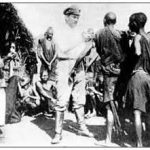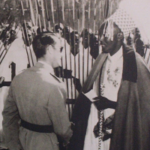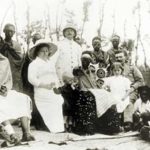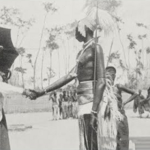Patron-Client Politics:Early Clientship
The natureof clientship in Rwanda has been the focus of a long-standing debate on the characteristics of Rwanda’s precolonial political system. Most analysts agree that patron–client ties were politically important in the Rwandan state.
These analysts disagree, however, on just how clientship was important and on what role patron–client ties played. Some observers have emphasized the integrative functions of patron–client ties in Rwanda; for them, clientship linking persons of different social status served to mitigate the harshness of Tuutsi rule, affording protection and succor to the less powerful in a highly stratified society. Others, stressing the role of power in the Rwandan state, have viewed clientship as a coercive institution, simply one more means by which the powerful could control subordinates and extract services.
Each of these positions contains valid elements but neither is adequate in itself. Until recently the analysis of clientship in Rwanda has been dominated by an intense fucus on ubuhake clientship to the exclusion of other forms of cattle ties and, most important, of land clientship. These studies often neglected consideration of the significance that these forms of clientship held for human relations—some accounts merely described the mechanisms of creating clientship rather than analyzing its social repercussions. The earlier writings also failed to examine changes in patron–client ties, in the relationships of different types of clientship to each other, and in the wider political context as this affected clientship. Finally, the debate on ubuhake tended to portray cattle clientship as a homogeneous institution found in the same form in all regions of Rwanda, and incorporating virtually all men in the society.
To understand the extent and impact of Tuutsi power in Rwanda, we need to explore how clientship relations were transformed in the context of an evolving colonial state. This requires a move away from the
exclusive concentration on cattle clientship. We need to account for more diverse types of patron-client ties as well as changes in clientship patterns over time. And we need to see this diversity and these alterations in their relation to state power. As the Rwandan state expanded, clientship patterns in peripheral areas such as Kinyaga were altered in important ways by the growing penetration of political norms and the projection of political power from the center, even as these norms and the exercise of power were themselves being transformed throughout the kingdom. A study of such processes shows how state power, particularly during the European colonial period, served as an active agent creating and maintaining patterns of ethnic and class inequality.
A processual concept of clientship helps account for the diversity of clientship forms over both place and time. As noted previously, I view clientship as an “instrumental friendship” formally established between two persons of relatively unequal socioeconomic status. While in theory both rights and duties of different kinds are incumbent on the two roles, in practice these claims and obligations may vary according to the individual status of the partners and the political context in which the relationship occurs. Conventionally, clientship is said to involve the exchange of protection from the superior partner (the patron) for services of the inferior (the client). It will become evident that during the later period in Kinyaga protection was often not forthcoming, and during the earlier period it was often not so much services that were expected from the client as political support in the context of “alliance.”
https://uk.amateka.net/patron-client-politicsearly-clientship/https://uk.amateka.net/wp-content/uploads/2020/05/Bicumbi.pnghttps://uk.amateka.net/wp-content/uploads/2020/05/Bicumbi-150x150.pngChanges and ColonialismThe natureof clientship in Rwanda has been the focus of a long-standing debate on the characteristics of Rwanda’s precolonial political system. Most analysts agree that patron–client ties were politically important in the Rwandan state. These analysts disagree, however, on just how clientship was important and on what role patron–client ties...BarataBarata rpierre@ikaze.netAdministratorAMATEKA | HISTORY OF RWANDA




